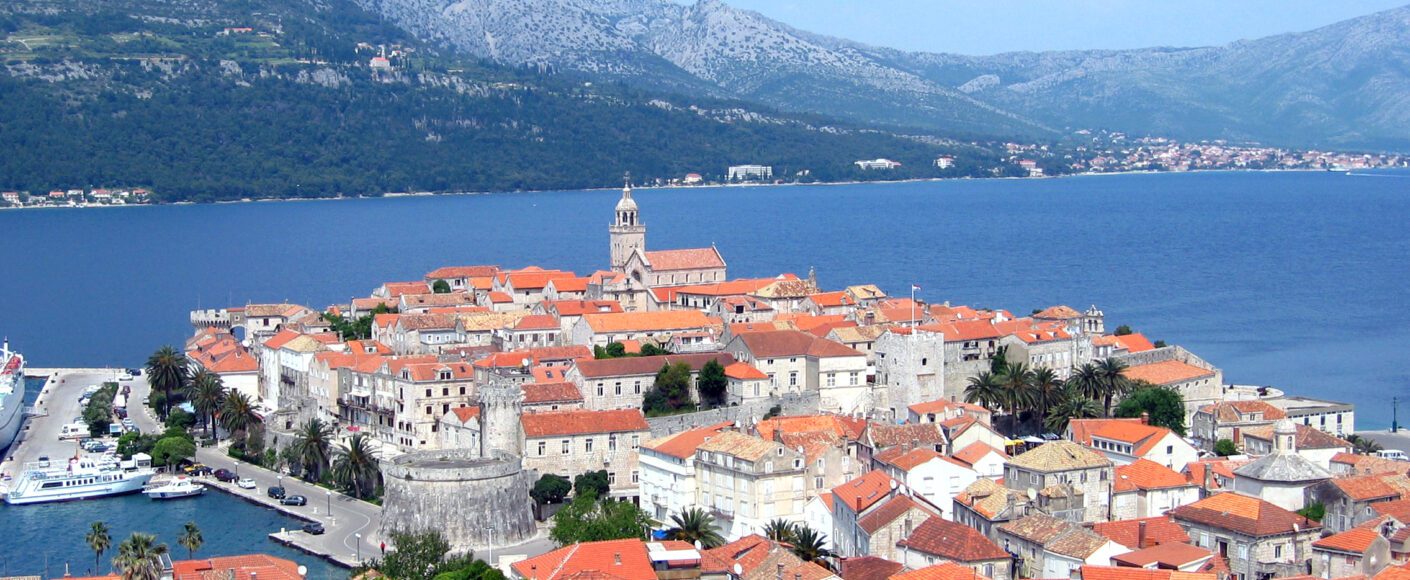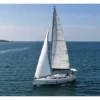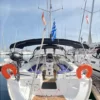Korčula: an island with a fascinating history

Immerse yourself in the history and beauty of the mountainous island of Korčula, hidden off the coast of Croatia in southern Dalmatia. From picturesque landscapes to legendary figures, this island has much to offer.
Geography and characteristics
The island of Korčula, with an area of 271.47 km², is a true gem of the Adriatic Sea. Stretching 46.8 kilometers long and 5.3 to 7.8 kilometers wide, it offers a varied landscape. The highest peaks, Klupca (568 meters above sea level) and Kom (510 meters above sea level), are adorned with Mediterranean vegetation, creating picturesque views.
Places and history
Approximately 17,000 residents call Korčula their home, with the largest villages including Korčula, Blato, Vela Luka, Lumbarda and Žrnovo. The island’s history dates back to Mesolithic and Neolithic times, as evidenced by numerous excavations.
Legend has it that the island was discovered by Antenor in the 12th century BC, and the first settlers were people of the Mesolithic and Neolithic eras. In the 6th century BC. The Greeks of Corfu established a colony called “Black Kerkyria.” After the Illyrian Wars, the island became a Roman province and later became part of the Byzantine Empire.
Slavs and Avars settled Korčula in the 6th and 7th centuries, and the Christianization of Croats began in the 9th century.a W 998 wyspa przeszła pod weneckie panowanie, a w XII wieku znalazła się pod kontrolą Republiki Weneckiej na krótko przed uzyskaniem autonomii.
In 1214, the “Statute of Korčula” was established, giving the island autonomy. Residents turned to the Republic of Dubrovnik for help to fend off an attack by the Stefan Nemani brothers. In 1221 Pope Honorius donated the island to Princess Krrki.
Marco Polo and the legacy
The town of Korčula is considered the birthplace of the famous traveler Marco Polo. The fascinating history of the island and its impact on cultural development is the subject of research at the Korčulan Summer School, which was established in the early 1960s. XX century.
Korčula is not only a place of natural beauty, but also a wealth of heritage and culture that has survived through the centuries. Discover the charm of Korčula, where the past intertwines with the present, creating an unforgettable Adriatic landscape.
See also: Hvar Island: Culture and Traditions




